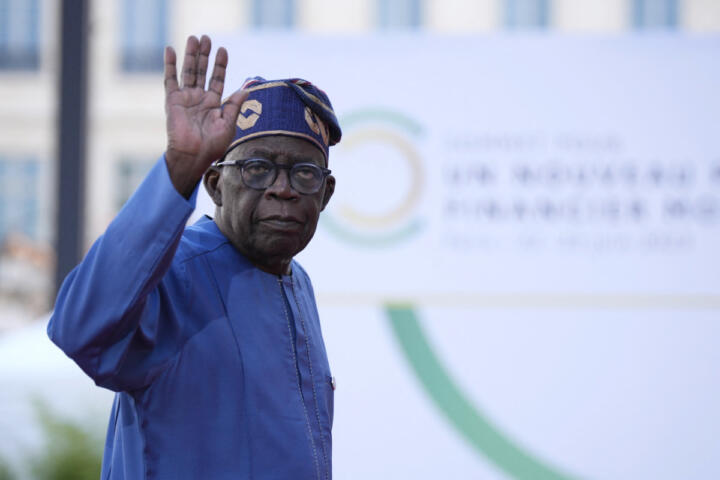Infostride News witnessed a decline in the exchange rate in Nigeria, affecting both the official and parallel markets on the day the Supreme Court upheld Bola Ahmed Tinubu’s victory in the presidential election. This event triggered various reactions in the financial and political landscape of the country.
In the parallel market, where traders provide unofficial exchange rates, the value of the naira against the dollar took a significant hit, plummeting to an unprecedented low of N1,300 to the dollar. This sharp decline raised concerns about the stability of Nigeria’s unofficial foreign exchange market.
On the other hand, the official NAFEX market, where the exchange rate is officially determined, witnessed a decrease in the naira-to-dollar rate. It dropped to N837.49 from N801.1 just a day before the Supreme Court ruling. This marked the fourth-lowest level since the unification of the exchange rate windows. During the trading session, the intra-day exchange rate fluctuated between N891/$1 and N701/$1, with a total turnover of $113.2 million. This high turnover was the most significant in approximately six trading days.

Simultaneously, the Nigerian stock market experienced a 0.18% decline. This decline was attributed to stockbrokers assessing the third-quarter earnings results from various companies, which had a dampening effect on investor sentiment.
The Supreme Court’s ruling had a notable impact on the political landscape. Earlier in the day, the Supreme Court rejected an application from Atiku Abubakar and the Peoples Democratic Party (PDP) to submit new evidence related to President Bola Tinubu’s diploma from Chicago State University (CSU). Justice Inyang Okoro, who delivered the verdict, ruled that the time for introducing fresh evidence at the Court of Appeal had passed, rendering it ineligible for consideration at the Supreme Court level.
In addition to this, the Supreme Court also dismissed an appeal filed by Peter Obi, the presidential candidate of the Labour Party. The seven-man panel, led by Justice Inyang Okoro, deemed the appeal lacked sufficient merit and, therefore, dismissed it. Peter Obi’s appeal sought to reverse the Presidential Election Tribunal Court’s (PEPT) decision from September 6th, which had upheld President Tinubu’s victory.
The financial markets’ response to the Supreme Court’s ruling was not as pronounced as one might have expected. Infostride News suggests that this could be because market participants had already factored in a legal victory for the president. Consequently, the court’s decision was perceived as relatively inconsequential in terms of its impact on the financial markets. Had the Supreme Court ruled differently, the market might have experienced more substantial fluctuations, either positive or negative.
With the legal challenges now resolved, most analysts anticipate that President Tinubu and his administration will shift their focus to economic recovery and stability. This includes addressing the challenges faced by the foreign exchange market, stabilizing the naira, and implementing policies to foster economic growth and development.
In summary, the Supreme Court’s ruling had significant implications for both the political and financial sectors in Nigeria. While the exchange rate experienced a decline, the financial markets remained relatively stable, with expectations of a renewed focus on economic matters now that the legal challenges have concluded. President Tinubu’s administration will likely face the task of steering the country towards economic recovery and stability, which remains a pressing concern for many Nigerians.
Support InfoStride News' Credible Journalism: Only credible journalism can guarantee a fair, accountable and transparent society, including democracy and government. It involves a lot of efforts and money. We need your support. Click here to Donate
